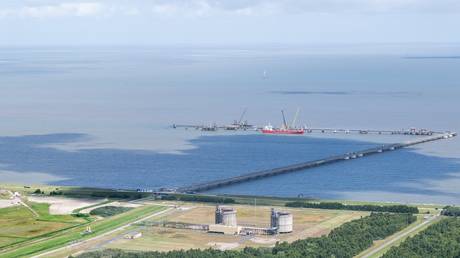
“State actors” likely damaged the Russian gas pipelines, and more attacks may follow, the BKA is quoted as saying
German police believe that state actors were likely behind the recent explosions on the Russian Nord Stream natural gas pipelines in the Baltic Sea, and are warning that more attacks on energy infrastructure might follow, Der Spiegel reported on Wednesday.
The German magazine cited a letter it obtained, sent by the Federal Criminal Police Office (BKA) to industry representatives. The document described the breaches in the Nord Stream 1 and 2 pipelines as “targeted sabotage” and suggested that the perpetrators were likely agents of an unidentified country. The agency cited the “high complexity” of the operation’s preparation and execution.
Three of the four strings of the Nord Stream pipelines were ruptured last week, with deliberate sabotage widely accepted as the most likely scenario.
The BKA also believes further action, “in a quantitatively and, potentially, qualitatively increased form,” may be in the making, Spiegel reported. The law enforcement agency named crucial energy infrastructure such as offshore terminals for liquefied natural gas (LNG), wind turbines, power lines and undersea internet cables as possible targets.
The Nord Stream routes were designed to carry Russian natural gas directly to Germany, bypassing transit states including Ukraine and Poland.
Moscow has said the US, a long-time critic of Germany’s reliance on Russian energy, stood to benefit most from the disabling of the routes, both politically and economically. American-supplied LNG has taken over much of the market share previously held by cheaper Russian pipeline fuel, since the EU decided to impose trade restrictions on Russia in retaliation for its military offensive in Ukraine.
Washington has denied any involvement in the damage to Nord Stream. Critics of Russia have suggested Moscow itself may have blown up the pipelines, to put pressure on the EU.
Neither pipeline was operational at the time of the breach. Berlin refused to certify the newer Nord Stream 2 after its completion last year, and Russia halted supplies via the older Nord Stream 1 in late August, citing sanctions-induced maintenance problems.




